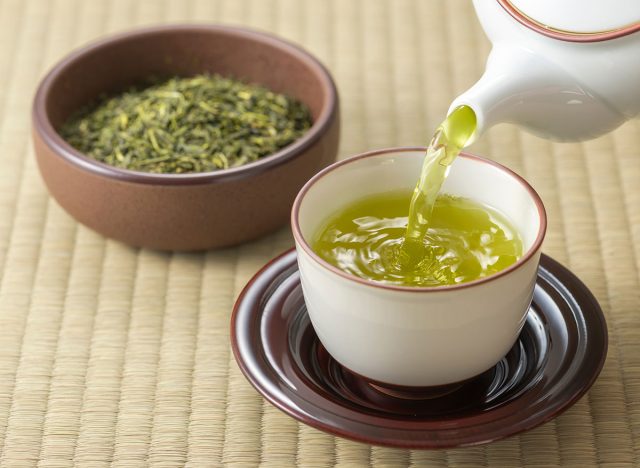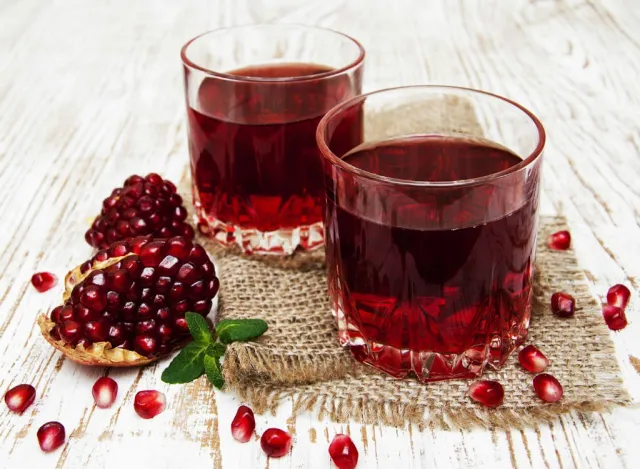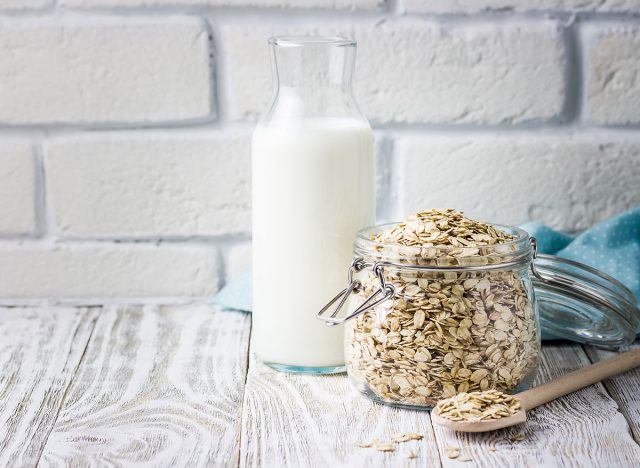If you have high cholesterol or if you’re at high risk for developing the condition, it’s not always what you eat to help improve your heart’s health. All too often, people focus on what they eat to lower cholesterol, but what you drink can also affect your cholesterol levels and improve heart health.
Here are four drinking habits you must follow if high cholesterol runs in your family. Read on, and for more on how to eat healthily, don’t miss The #1 Best Juice to Drink Every Day, Says Science.
Drink green, black, or oolong tea

Tea is the most widely consumed beverage worldwide next to water. Green (unfermented), black (fully fermented), and oolong (semifermented) are from the same Camellia sinensis plant, which provides cholesterol-lowering and other heart-health benefits.
The heart health of tea is attributed to its abundant flavonoids including flavan-3-ols, which are naturally- occurring plant compounds that can help lower cholesterol and improve blood vessel health. A study published in Advances in Nutrition evaluated the results from 37 previously published studies and reported that study participants who drank 2-3 cups (16 ounces) of tea per day reduced the risk of heart disease by about 8-12 percent, compared with those who did not drink tea.
Drink pomegranate juice

The vibrant crimson color of pomegranates is due to the polyphenol pigments in the fruit. In addition to the polyphenols, pomegranates are rich in flavonoids, lignans, and triterpenes. Many of these compounds are antioxidants that help lower harmful LDL-cholesterol levels. There are numerous published studies that show how 100% pomegranate juice improves heart health. Pomegranate juice can help reduce oxidized cholesterol to slow the growth of the build-up of plaque in arteries.
Drink red wine


Red wine in moderation (one glass per day for women; two glasses per day for men) has long been known to be heart healthy. One of the ways that red wine improves heart health is by increasing beneficial HDL cholesterol levels and lowering harmful LDL-cholesterol levels. Research links several bioactive compounds in red wine to its cholesterol-lowering benefits including resveratrol, catechin, epicatechin, quercetin, and anthocyanin. Always keep in mind that if you don’t drink, it’s not recommended to start to improve your cholesterol. And, when it comes to alcohol, more is not better.
Drink oat milk

Decades’ worth of research proves that oats are effective at lowering cholesterol. Oats are rich in a unique type of soluble fiber — beta-glucan — that helps trap cholesterol and helps excrete it from the body. Oat milk is a concentrated source of beta-glucans and is thought to be responsible for lowering total and LDL cholesterol. Several studies show that when subjects drank oat milk, compared to other plant-based beverages, cholesterol levels can decline by about 6 percent. For the healthiest oat beverage, look for one with no added sugar, like any of these The Best & Worst Oat Milk Brands to Buy, Say Dietitians.
Credit: eatthis.com















